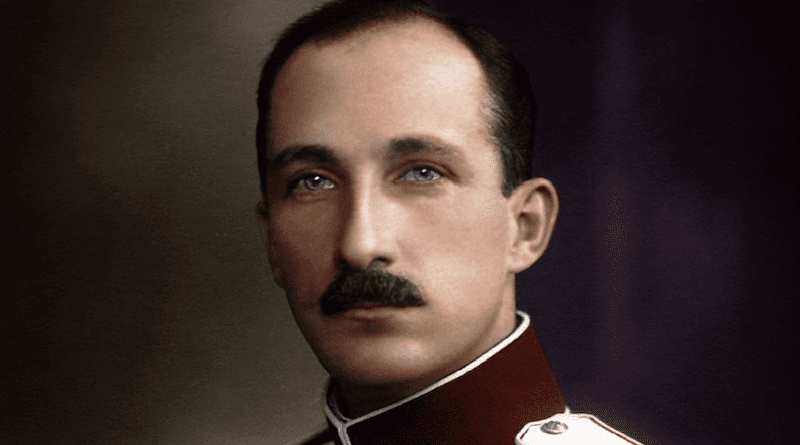Club Named After Bulgarian King Stirs Anger In North Macedonia
By Sinisa Jakov Marusic
Several hundred people gathered to express outrage in the town of Ohrid, in North Macedonia, on Friday against the opening of a cultural club named after the wartime King Boris III of Bulgaria – who led Bulgaria into the Nazi-led Axis alliance in World War II and occupied much of today’s North Macedonia.
Protesters chanted “Fascists” and “Killers” at members of the club attending the opening. They also sang the national anthem and carried banners saying, “No negotiations with Fascists” and, “Fascism must fall”.
The protest saw scuffles between protesters and the police guarding the club entrance. Some protesters were seen throwing eggs at the club building.
The situation became especially tense after members of the club displayed a big flag of Tsar [king] Boris from the balcony, which the protesters saw as an additional provocation.
Local news website A1 On reported seeing a police attempt to arrest someone allegedly throwing objects at the club’s terrace. But the police abandoned their attempt after provoking more tension in the crowd.
The opening of the club comes against the backdrop of a bitter dispute between North Macedonia and Bulgaria over history and identity.
Bulgaria insists that the Macedonian Identity and language have a Bulgarian origin. Among other things, it wants North Macedonia to change textbooks referring to the three-year occupation in World War II as “occupation” and alter that to “Bulgarian administration”.
Bulgaria has blocked North Macedonia’s EU accession over this dispute for almost three years and only this summer agreed to conditionally lift the veto, following a recent French proposal to resolve the dispute and end the blockade.
The so-called French proposal, which was backed by the Social Democrats-led government in Skopje, angered the opposition who accuse the government of betraying national interests.
Friday’s protest was originally called by the small opposition Levica [left] party, which not only saw a provocation in the name of the club but also in the timing.
It opened just days before October 11 – celebrated in North Macedonia as the day of the anti-Fascist uprising during World War II.
The protest was also supported by the main opposition right-wing VMRO DPMNE party whose leader, Hristijan Mickoski on Thursday called for “massive attendance”.
VMRO DPMNE MP Rashela Mizrahi, told media in Ohrid that the club “represents unacceptable historic revisionism and a more than serious provocation”.
This is the second Bulgarian club to open recently in North Macedonia which raised tension. in April, when another Bulgarian cultural club was registered in the town of Bitola, named after another Nazi collaborator, Ivan Mihailov, there were harsh reactions, including an attack on the club and the burning of its front door.
Jewish community angered as well
Both club openings have enraged North Macedonia’s small Jewish Community, which has announced filing charges against the leaders of the club in Ohrid, for spreading Fascism, Nazism and Antisemitism.
“Fascism must not be allowed back in Macedonia through such a grand entrance, it is inadmissible”, the head of the Jewish Community, Pepo Levi, told the media on Wednesday showing a photo of Tsar Boris III shaking hands with Adolf Hitler.
Nazi-allied Bulgaria refused to deport its Jews to Germany during World War II, however, and has been widely praised for this; however, this was not the case with the Jews in the territories it occupied.
Under Bulgarian rule, 7,144 Macedonian Jews were deported in 1943 to the Nazi death camp in Treblinka. Only a handful survived. The Macedonian Jewish community was virtually wiped out. On the site of the Jewish neighbourhood in Skopje stands a Holocaust Museum run by the Jewish Community.
The Ohrid association head, Tome Blazeski, told media in Ohrid that they had opened the club completely legally and have done nothing wrong.
“If we did something wrong, we apologise to the entire public, but we did not commit any offence. We observed all the laws, with all the respect to the state, the Republic of Macedonia, and to the Macedonians,” Blazeski said.

